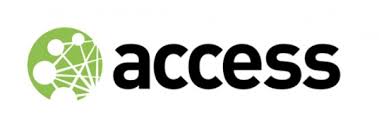
We are delighted to announce that Access is currently in the nascent stages of implementing a three-year subgranting project. This project will allow us to more directly support the critical work of civil society actors working on digital rights.
We are excited and humbled to be able to realize our mission — defending and extending the digital rights of users around the world — by helping to ensure that at-risk actors and organizations have the resources they need to advance their rights and the rights of the communities they serve.
We know this is a big responsibility. Access is committed to building a granting program that will empower those who are fighting for digital rights, and we are entering into this space with great respect for the overall ecosystem.
We believe that transparency and clarity — of processes, of criteria, and decisions — will be a key determinant to the success of this project: As such, this post is the first in a series of blog posts which describes our ideas and early thinking.
We look forward to engaging with the Access community and interested parties throughout this process. If you have thoughts for how we should fund the space, please reach out! We’re depending on your feedback and suggestions as we work to establish a program that will be efficient, outcome-oriented, and responsive to emerging opportunities in our global community.
Below are more details about the nature of this program as it stands:
Nature of Funds
We’ve received initial funds for subgranting with the backing of the Swedish International Development Agency(Sida) as a continuation and extension of a previous project focused on digital security. The subgranting funds will enable us to directly support digital rights defenders, communities, and networks, with a particular focus on bolstering the capacity of actors in the Global South. The project is scheduled to last three years, beginning later in 2015 and ramping up at the beginning of 2016. We don’t expect to have all the answers in these early stages and wish to see the program evolve over the coming years, which is why we have engaged in an extensive consultation process.
Consultation Process
Our goal is to distribute different grant types that can respond to the varying needs of digital rights actors in the space. However, before the first grant goes out the door, we want to make sure that we have a firm understanding of the unique challenges facing our community partners. That’s why we’re building our granting framework around needs we’re identifying during consultations with stakeholders around the globe. Thanks to all those who have already given us their time and perspective.
Spearheading the consultation process, and the project as a whole, is Rian Wanstreet, Access’ Grants Program Manager. For the past two years, Rian has been managing the RightsCon Summit Series, and we’re delighted that she will bring her deep global connections to the subgranting project. In the past two months, Rian has engaged in more than 50 formal consultations with representatives from civil society, professional associations, and funding bodies from more than 15 countries. These conversations have led to a deeper understanding of the needs in the space, but it’s just the start of an ongoing process. These consultations and in-person visits will continue throughout the lifecycle of the project to ensure that the program is as responsive as possible to the needs to digital rights actors globally.
Giving Strategy
Access’ organizational mission to defend and extend the digital rights of users around the world, particularly those most at risk. Our global consultations have confirmed that a broad and overarching strategy such as this should apply to our giving, and that focusing on critical funding to the actors in the Global South is where and how we can have the most impact.
Access will be assembling an Advisory Board in the next few months to provide strategic guidance and oversight for the recipients of the grant funds. We see the establishment of an external advisory board as essential to ensuring accountability, oversight, and third-party review.
It is expected that the granting program will focus funding in five broad issue areas, which are consistent with the global consultations that we have engaged in: privacy, freedom of expression, network discrimination, digital security, and business and human rights. More detail on each of the areas will be provided as the program evolves.
Thus far, we’ve identified three potential funding types that can both address identified structural issues, and nimbly provide pathways to address rapidly changing challenges: Discretionary Grants, Programmatic Grants, and Core Grants. Having a range of grant types means that potential grantees will be able to apply for funding in a way that is consistent with their needs rather than having to reshape to fit within over-prescriptive guidelines.
While we also have reporting requirements, our intention is to make the burden on applicants as low as possible, which means short applications, achievable criteria, and limited reporting. We keep hearing that is what people want, and our plan is to respond accordingly. Time is better spent doing the real work on the ground, rather than writing about it!
Our goal is to have the logistical foundations in place to begin granting at the end of 2015, with the first found of Core and Program grants distributed in January 2016. It is likely that there will be some flexibility for Discretionary Grants in the last quarter of 2015. But please remember that this is our goal, and at this early stage we are reluctant to have firm deadlines. Our plan is to update you on this blog periodically to ensure that there is transparency of thinking, timelines, and process.
Next Steps
The consultation process has already led to an understanding of how we can build out a diverse grant portfolio that fills important gaps in the digital rights space. While we have ambitious goals for how we’d like to develop this program, we believe that limiting the project’s scope at launch, and then scaling it as we develop expertise, will yield the best outcomes for both grant recipients and the program.
We’re in the thick of conceptualizing the granting framework that includes guiding principles, grant criteria, the Advisory Board structure, and (limited, wherever possible) documentation requirements. Over the next two months we will formalize these structures. Additionally, we’re working hard to build our own capacity to safely and securely administer these grants by thoughtfully choosing nimble systems, protecting the digital security of applicants, and carefully reviewing legal and financial compliance issues.
We’re committed to designing a grants program that best supports our partners and at-risk users through maximum transparency, clarity, flexibility, and trust. Please feel free to reach out to myself or Rian at rian@accessnow.org as we progress.
